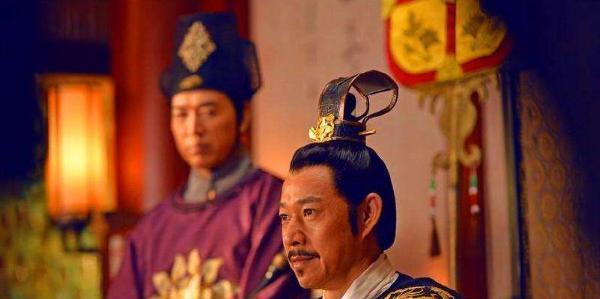When the Tang Dynasty was first established, the military implemented the prefectural military system, which required men between the ages of 20 and 60 to perform military service. It's just that they are not professional soldiers, they work in the family farm in peacetime, participate in training in the agricultural leisure season, and can directly take up arms and fight in wartime. However, the imperial court did not distribute them with weapons and equipment, and even did not prepare grain, and when it came to duty, the peasants still had to buy weapons and equipment themselves, and took turns to go to the border or the Beijing division on duty, so the phenomenon in the "Mulan Ci" would appear.

During the Tang Dynasty, the country had just finished fighting, the army was in the hands of the imperial court, and if the local generals wanted to rebel, they could not defeat the central government. By the time of Emperor Gaozong of Tang, the older generation of soldiers had basically died, and if the new generation of peasants went to buy weapons and equipment, prepare their own grain, and fight with the imperial court, there would certainly be many people who were unwilling. Therefore, more and more people do not want to serve in the military, and the prefectural military system has been unable to obtain a sufficient number of soldiers.
Therefore, the imperial court changed the military system to a conscription system, recruiting qualified men to join the army, and the food and equipment were borne by the state, and they were professional soldiers. However, over time, the quality of the soldiers recruited gradually declined, allowing these people to defend the Beijing Division, which was simply useless, and the elite soldiers and strong generals were in the hands of those clan towns, which caused the Anshi Rebellion. Later, the Tang Dynasty suppressed the rebellion with great difficulty, so why not think bitterly, change the former wrongs, and weaken these feudal towns with heavy troops?
In fact, the Tang Dynasty not only did not weaken them, but in the later 144 years, the Tang Dynasty was controlled by The Fanzhen and finally destroyed in the hands of the Fanzhen. The reasons are as follows: First, after the Anshi Rebellion, the Tang Dynasty's handling of the town was not appropriate, and after the rebellion was quelled, many generals with military merits needed to be rewarded. Therefore, in order to achieve stability, the emperor also appointed a large number of emissaries, and the number of feudal towns did not decrease but increased, and Shi Siming, An Lushan, who had already surrendered, these generals, the imperial court gave them some feudal towns in order to appease them.
Second, the power of moderation is also increasing, and we can refer to the first point, which is also for the same reason. The more the imperial court indulged in moderation, the greater their power grew. Third, the Tang emperors were weakening day by day, and the later emperors were not able to do much, and they were toyed with by their subordinates, let alone against the feudal towns.
Fourth, the situation of the dominance of the fanzhen family has been formed, and the reason why the Anshi rebellion can break out is because An Lushan was the emissary of the three towns at that time. If he did not rebel, he would be taken over by the emperor, so it was better to rebel, and by the end of the Tang Dynasty, Zhu Quanzhong had been able to influence the imperial court by means of force and annexation. He also made a farce of blackmailing the Heavenly Son to order the princes, and the scene of the last years of the Eastern Han Dynasty reappeared at this time, and when no one could cure Zhu Quanzhong, he accepted the Zen concession of the Tang Emperor and naturally became the emperor of Later Liang.